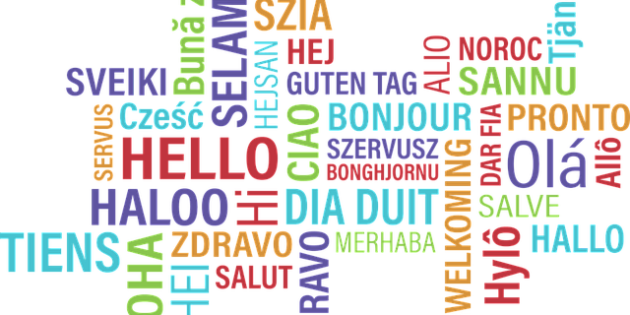If you are a native English speaker and you have tried to learn one of the main European Languages (French, German, Spanish or Italian) then you will no doubt have discovered that there are many similarities between English and each of these languages.
I don’t know the full background to this but it has something to do with latin I think (please can one of my more erudite readers correct me on this!).
Anyway the point being that there are words that you already know in another language because of similar roots from way back.
For example in German, Hafen means harbour. This is closely aligned to the word Haven as in a safe haven. So a German word has links to an English word.
Therefore in order to remember something new we can link it to something we already know. With these European languages this happens quite a lot which is why relatively speaking, they are quite easy for English speakers to learn.
Now if you have been reading my posts over the last couple of days, you will know that I am learning to speak Russian which is a completely different language to English.
I have a friend who is convinced that all I need to do to speak Russian is just add the sound “-ski” on the end of every other word if youski know what I meanski.
So there are no convenient similarities to work on…so I have to make my own. Let’s take a word in Russian. I will have to spell it phonetically so that you can get an idea of how it is pronounced:
iz – vin – ee – cheh
The emphasis of this word is on the first syllable and it means “excuse me”.
Now when I first heard this it was broken down for me syllable by syllable starting with the last sound. This allowed me to hear the correct pronunciation and get that right in my own mind but even knowing how to say it didn’t mean I would remember it.
This is where I have to take something I don’t know (in this case the Russian Word for “Excuse me” ) and link it to something I did know – just so I could remember the pronunciation.
Now when I hear the word I immediately think of “Is Vinny’s Chair”. The emphasis is slightly different but it does help me to recall iz – vin -ee – cheh.
Now this little trick is only a temporary “memory crutch” while this word is still new to me. After a while I will no longer need to lean on this crutch because I will just “know” the word however without it I personally found it quite a challenge to learn the word.
All I now have to do is link “excuse me” to “Is Vinny’s Chair” and bingo I have learnt not only how to pronounce the word but also what it means.
This is a very powerful strategy and means you can learn foreign words very quickly. I am sure you could learn 10 words a day using this system and it would only take you 20 minutes at most.
So in a year you could have the working vocabulary of any language you wanted!
But the real beauty in this is not just that you have memorised foreign words, but that in doing so you will have exercised your creativity and will have thought about the word much deeper than if you had just tried to use good old repetition.
In my soon to be released memory improvement course I go into this in much greater detail and give you examples that you can hear and try for yourself.
Now if you have any ways that you have learnt foreign words then please do let me know so that I can share them with my other visitors.
